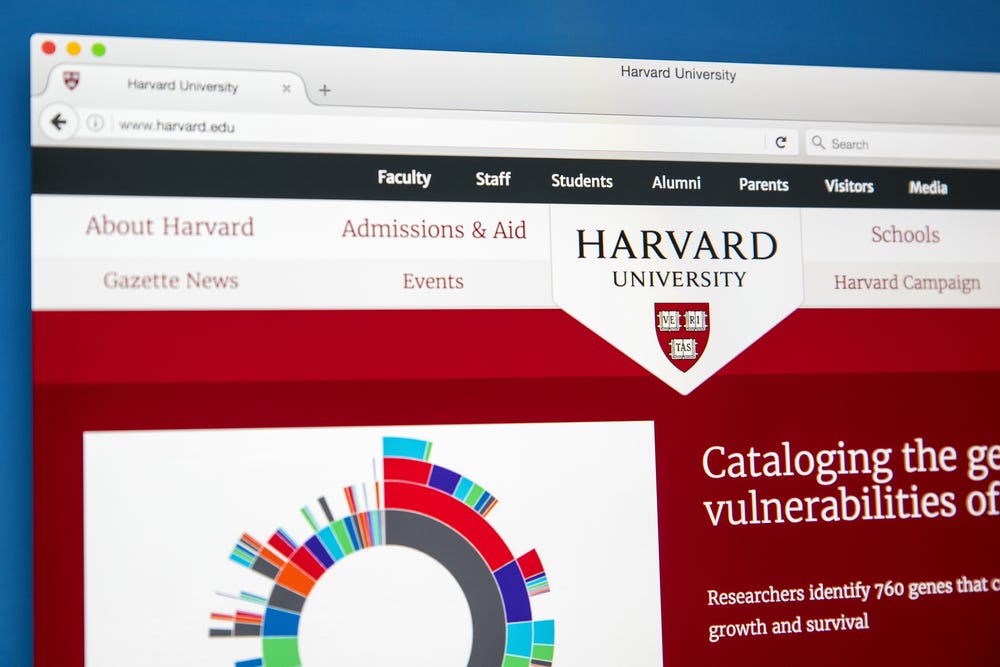E-Pluribus | June 2, 2022
The ACLU on the defensive, China's COVID lockdowns is a "silent Tiananmen," and merit-based college admissions should win on the merits.
A round-up of the latest and best writing and musings on the rise of illiberalism in the public discourse:
Joe Lancaster: ACLU Would Like You To Ignore Partisan Activism, Mission Drift
Joe Lancaster of Reason thinks David Cole doth protest too much regarding accusations the civil liberties organization has slipped from its moorings. Rather than fully acknowledge the ACLU’s drift into a broad intersectionality with progressive causes that even some allies have pointed out, Cole doubles down and insists free speech is still Job One.
This week, David Cole, the American Civil Liberties Union's (ACLU) National Legal Director, wrote in The Nation that critics have accused the organization of "no longer defend[ing] those with whom we disagree." Former supporters have referred to the organization as a "caricature of its former self" that is "leaving the First Amendment behind." Cole, on the other hand, contends that the organization "continue[s] to believe that the First Amendment is the foundation of our democracy, and we defend it for precisely that reason." Despite citing plenty of commendable examples, his defense misses the degree to which internal partisan shifts have watered down the ACLU's mission.
[ . . . ]
In the last few years, the organization seems to have drifted into outright partisan political activism: Rather than simply advocating for specific civil liberties–protecting policies or ballot initiatives, in 2018, the ACLU spent $800,000 on a campaign ad for Democrat Stacey Abrams in her run for governor of Georgia. Last year, it petitioned for the government to cancel up to $50,000 in student loan debt per borrower. Regardless of the merit of either position, neither is directly related to the defense of constitutional rights or civil liberties.
Cole's defense, that the organization retains its single-minded defense of free speech for all, does not adequately recognize that today's organization is riven by internal struggles over whether free speech is compatible with social justice. Nor does Cole recognize that many of these critiques come from within the ACLU's tent. The revised case guidelines were originally leaked by Wendy Kaminer, an erstwhile ACLU board member who had grown critical of the organization. Nadine Strossen, a former president, and Ira Glasser, former executive director, each criticized the organization for its post-Charlottesville pivot. And David Goldberger, one of the Jewish attorneys who famously defended the Skokie neo-Nazis, said of the organization today, "I got the sense it was more important for A.C.L.U. staff to identify with clients and progressive causes than to stand on principle."
Read it all.
Chang Che: Shanghai’s Last Generation
Given China’s 1.4 billion population and global influence, any slippage of its authoritarian grip on its own people is a potential positive blow against illiberalism. Chang Che writes for Persuasion that Covid-zero protocols have deeply damaged the standing of the ruling Communist Chinese Party in the eyes of Shanghai residents, leading one to declare, “We will be the last generation” to put up with the CCP’s tyranny.
An ocean of betrayal and distrust has emerged following the Shanghai lockdowns, much as it did in June 1989. Like the students in Beijing, Shanghai’s youth are ready to flee. In early April, searches for “emigration” quadrupled on Weibo. A new trending hashtag related to fleeing the country—runxue, meaning “run philosophy”—proliferated among youths. (The word “run” was later wiped from Weibo search results.)
It is only for circumstantial reasons that Shanghai has not had the same moral outrage and resonance as Tiananmen. Both involved deaths by deliberate human action, a complete disaffection of the youths, and the decimation of collective action. The difference is that the latter occurred in a public square, its events and aftermath witnessed by foreign journalists. Shanghai occurred in the confines of the home with no journalists present. Now, with high-tech surveillance and a powerful censorship apparatus, collective actions can be nipped in the bud, ensuring that tragedies of unfathomable scale occur in deliberate obscurity. In recent weeks, Shanghai residents began to tally a list of deaths due to denied medical treatment, among other reasons. (The list now counts over 200 people, quadruple the official Covid-death count.) But censors have ensured that it will not be widely shared. We will never know the true number.
Shanghai may be the denouement of an era in which China was an alluring destination for foreign businessmen and dreamers. Like Hong Kong, the city is now part and parcel of an increasingly unrecognizable country. For young Chinese without the privilege to escape, a new form of resistance has taken hold, born out of cynicism toward the state and diminishing future prospects. It is captured in the buzzword bailan, which began circulating across the Chinese internet in April as youths across forty-five cities were confined to their homes. Bailan is a verb that means “to tank” or “to quit life,” embracing rather than resisting an ever-bleaker future.
Read it all here.
Alan M. Dershowitz: Harvard Needs Merit-Based Admissions
This year’s Supreme Court term will largely be remembered for the Dobbs abortion decision, and according to Alan Dershowitz writing at the Wall Street Journal, affirmative action is likely to define the next term. Rather than level the playing field, Dershowitz says affirmative action has actually harmed those intended to be helped, and that doing away with race-based admissions in addition to “legacy status, athletics, geography and other nonacademic preferences” in favor of merit will serve individuals, universities and the country far better in the long run.
The time has come, however, for universities to abandon their efforts to achieve superficial, artificial diversity based on race. The coming decision would provide American schools with an opportunity to develop admission criteria based on academic achievement and potential—while abolishing such non-merit-based criteria as legacy status, athletics, geography and other nonacademic preferences. There would be resistance to getting rid of these advantages, but it could be done.
I believe the result of a merit-based policy would be more meaningful diversity. The result of such a policy would likely give way to more political, ideological, geographic, religious and other types of diversity that are at least as relevant to the educational mission of the university as race and ethnicity. I certainly am not asking for a return to “the good old days” of WASP dominance—those days were anything but good—but I am asking for an approach rarely attempted by American universities: pure meritocracy.
[ . . . ]
Meritocracy doesn’t require an exclusive focus on test scores and grades, as there are other ways of measuring merit and potential, such as recommendations and achievements outside of school. Nor should it discourage aggressive recruitment from underrepresented groups that might be unaware of opportunities at elite universities. The adoption of merit as the guiding principle for college admission may not result in the kind of racial and ethnic representation that universities now desire, but its result would be more authentic diversity.
Use of merit-based standards would also end the need for bloated bureaucracies that enforce diversity, inclusion and equity mandates throughout universities—mandates that sacrifice academic goals to social, ideological and political agendas. Real equality does not require massive bureaucracies.
Read the whole thing.
Around Twitter
Colin Wright responds to Richard Dawkins’s plea for the Left to police itself on free speech rather than leaving it to the “ugly Right”:
Glenn Greenwald on the ACLU’s free speech problem:
Michael Shellenberger, candidate for governor in California, suggests there’s a way to straddle the left-right divide:
And finally, via Conor Friedersdorf, Princeton professor Robert P. George speaks on free speech at Pepperdine:












